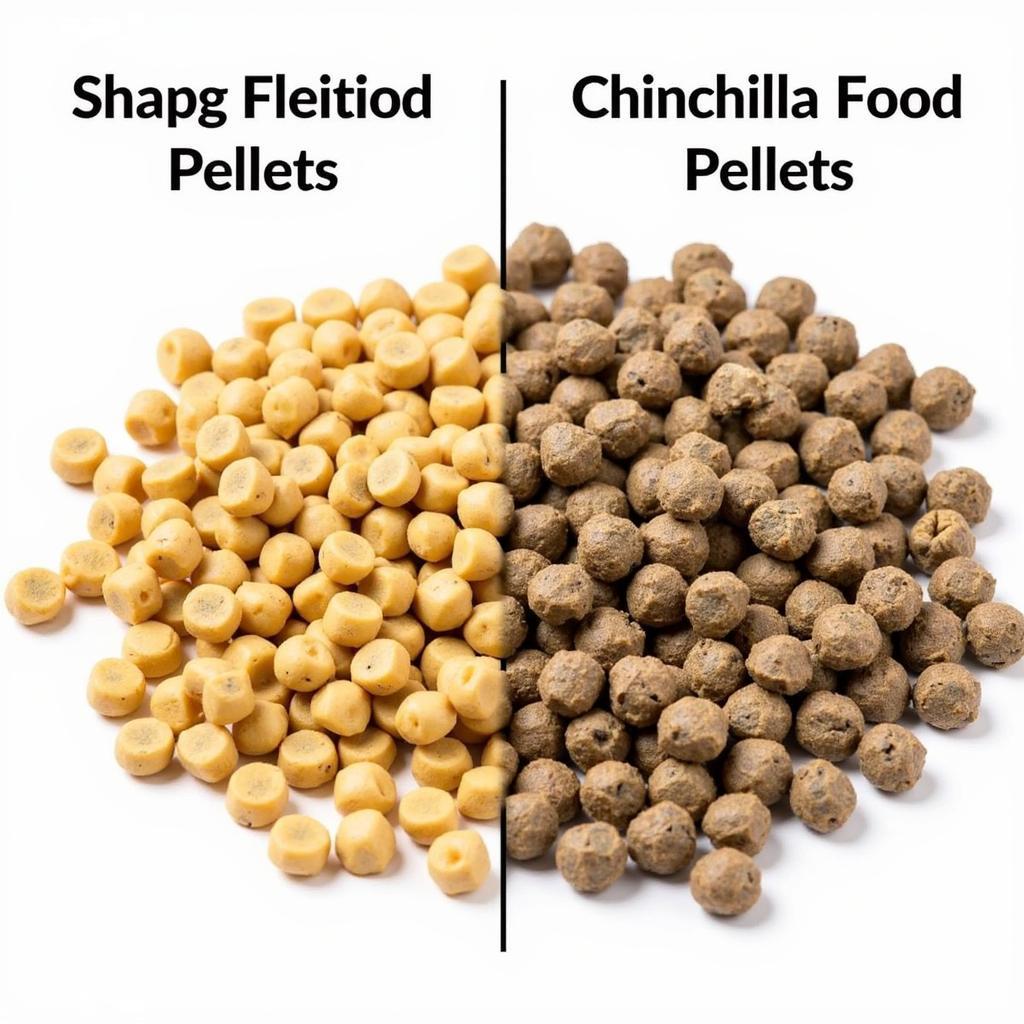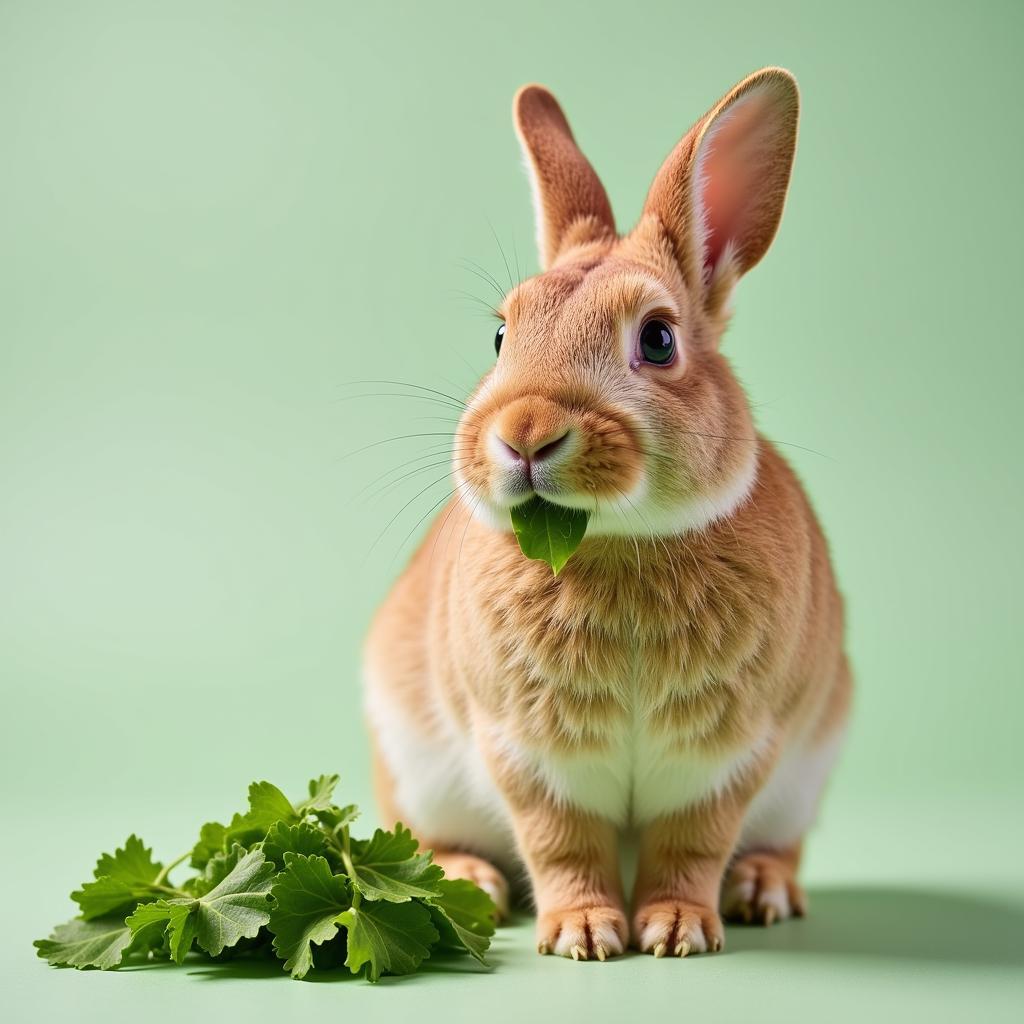Can Rabbits Eat Chinchilla Food? This seemingly simple question has a more nuanced answer than you might think. While both rabbits and chinchillas are small herbivores, their dietary needs differ significantly. Feeding your rabbit chinchilla food can lead to serious health issues in the long run. Let’s delve into the specifics of why these two seemingly similar diets are actually quite distinct.
Understanding the Dietary Differences Between Rabbits and Chinchillas
Rabbits and chinchillas have evolved with distinct digestive systems adapted to their natural diets. Rabbits require a diet high in fiber, primarily from hay, to maintain healthy gut motility and prevent digestive issues. Chinchilla food, on the other hand, focuses on different nutrients, often containing higher levels of protein and calcium than rabbit food. This difference in nutritional composition can wreak havoc on a rabbit’s delicate digestive system.
The Importance of Fiber for Rabbits
Fiber is the cornerstone of a healthy rabbit diet. It helps prevent gastrointestinal stasis, a life-threatening condition in rabbits. Hay provides the long-stemmed fiber necessary for proper digestion and helps wear down their constantly growing teeth. Chinchilla food, while containing some fiber, doesn’t offer the same type or quantity that hay provides. Therefore, even supplementing a rabbit’s diet with chinchilla food can disrupt the delicate balance of their digestive system.
The Dangers of Excess Calcium and Protein
Chinchilla food often contains higher levels of calcium and protein than is suitable for rabbits. Excessive calcium can lead to the formation of bladder stones, a painful and potentially life-threatening condition. Too much protein can also strain a rabbit’s kidneys and lead to other health complications. These dietary imbalances can cause long-term damage and significantly shorten a rabbit’s lifespan.
Why Choosing the Right Food is Crucial
Feeding your rabbit the correct diet is crucial for their overall health and well-being. A diet specifically formulated for rabbits ensures they receive the appropriate balance of nutrients, including the right amount of fiber, calcium, and protein. Choosing the right food is an investment in your rabbit’s long-term health and happiness.
Recognizing the Signs of Dietary Problems in Rabbits
Knowing the signs of dietary problems can help you address issues early on. Changes in appetite, fecal consistency, lethargy, and weight loss can all indicate a dietary imbalance. If you notice any of these symptoms, consult a veterinarian experienced with rabbits immediately. Early intervention is key to preventing serious health complications.
 Comparing rabbit and chinchilla food pellets
Comparing rabbit and chinchilla food pellets
What to Feed Your Rabbit Instead of Chinchilla Food
Instead of chinchilla food, offer your rabbit a diet rich in fresh hay, such as Timothy or orchard grass. High-quality rabbit pellets can supplement the hay, but should not make up the majority of their diet. Leafy greens and a small amount of vegetables can also be offered as treats. Always introduce new foods gradually to avoid digestive upset.
Creating a Balanced Diet for a Happy, Healthy Rabbit
A balanced diet is essential for a happy, healthy rabbit. Providing a variety of appropriate foods ensures they receive all the necessary nutrients for optimal health. Remember, a rabbit’s digestive system is delicate and requires a specific diet tailored to their needs.
 A healthy rabbit enjoys fresh vegetables
A healthy rabbit enjoys fresh vegetables
Conclusion: Keeping Your Rabbit Healthy and Happy
Can rabbits eat chinchilla food? The definitive answer is no. While it might seem convenient to feed both your rabbit and chinchilla the same food, doing so can have detrimental effects on your rabbit’s health. By understanding the specific dietary requirements of rabbits and providing them with the appropriate nutrition, you can ensure your furry friend lives a long, healthy, and happy life. Remember, a rabbit’s diet is the foundation of their well-being.
FAQ
- What is the most important part of a rabbit’s diet? Hay is the cornerstone of a healthy rabbit diet.
- Why is chinchilla food bad for rabbits? Chinchilla food often contains higher levels of calcium and protein than is suitable for rabbits, leading to potential health issues.
- What are the signs of dietary problems in rabbits? Changes in appetite, fecal consistency, lethargy, and weight loss can indicate a dietary imbalance.
- What should I feed my rabbit? A diet rich in fresh hay, supplemented with high-quality rabbit pellets, leafy greens, and a small amount of vegetables.
- What should I do if I think my rabbit has a dietary problem? Consult a veterinarian experienced with rabbits immediately.
- Can rabbits eat any type of hay? Timothy and orchard grass are excellent choices for rabbits.
- How much food should I give my rabbit each day? Unlimited hay, a measured amount of pellets based on weight, and a small portion of leafy greens and vegetables.
Need more assistance? Contact us! Phone: 02437655121, Email: [email protected] Or visit us at: 3PGH+8R9, ĐT70A, thôn Trung, Bắc Từ Liêm, Hà Nội, Việt Nam. We have a 24/7 customer service team.